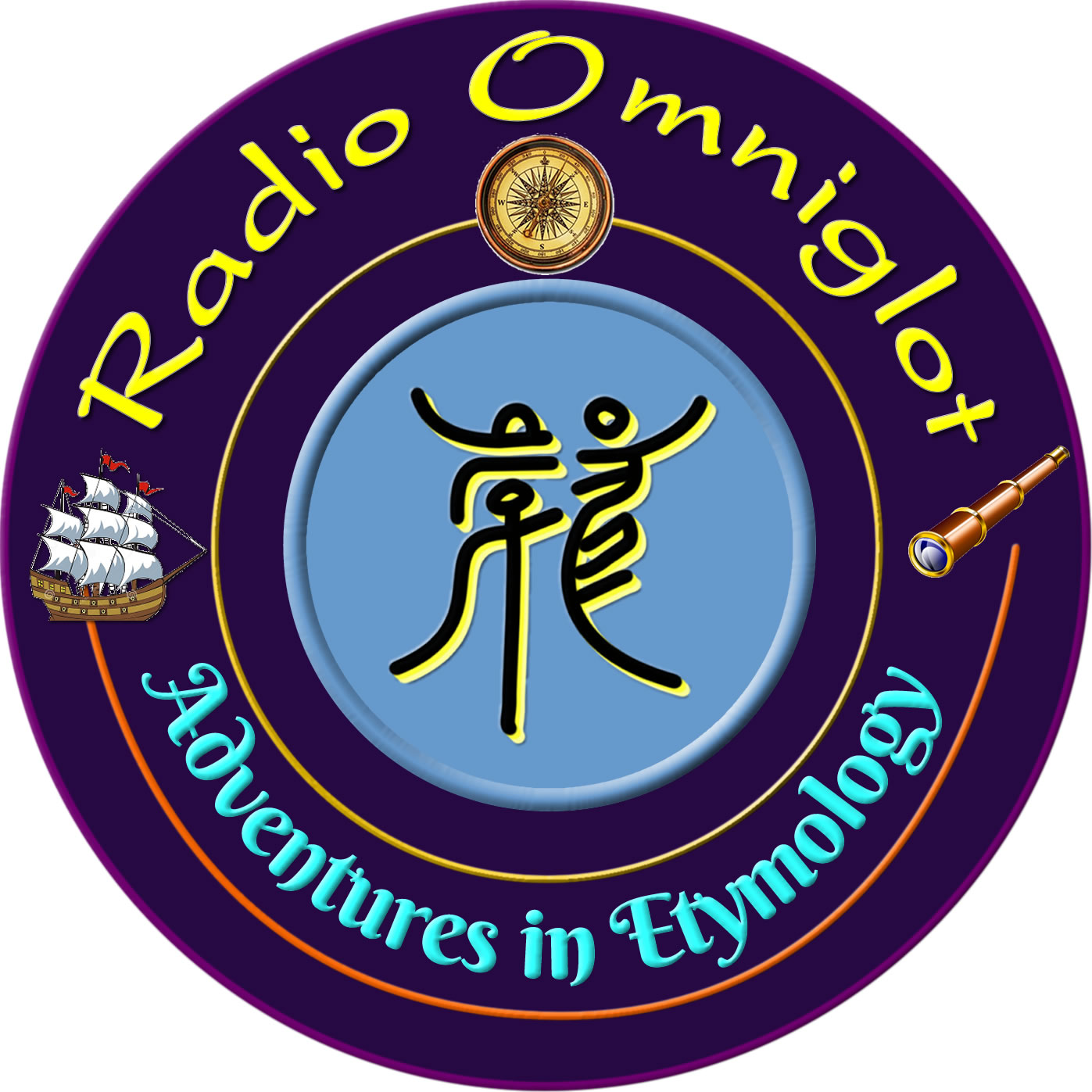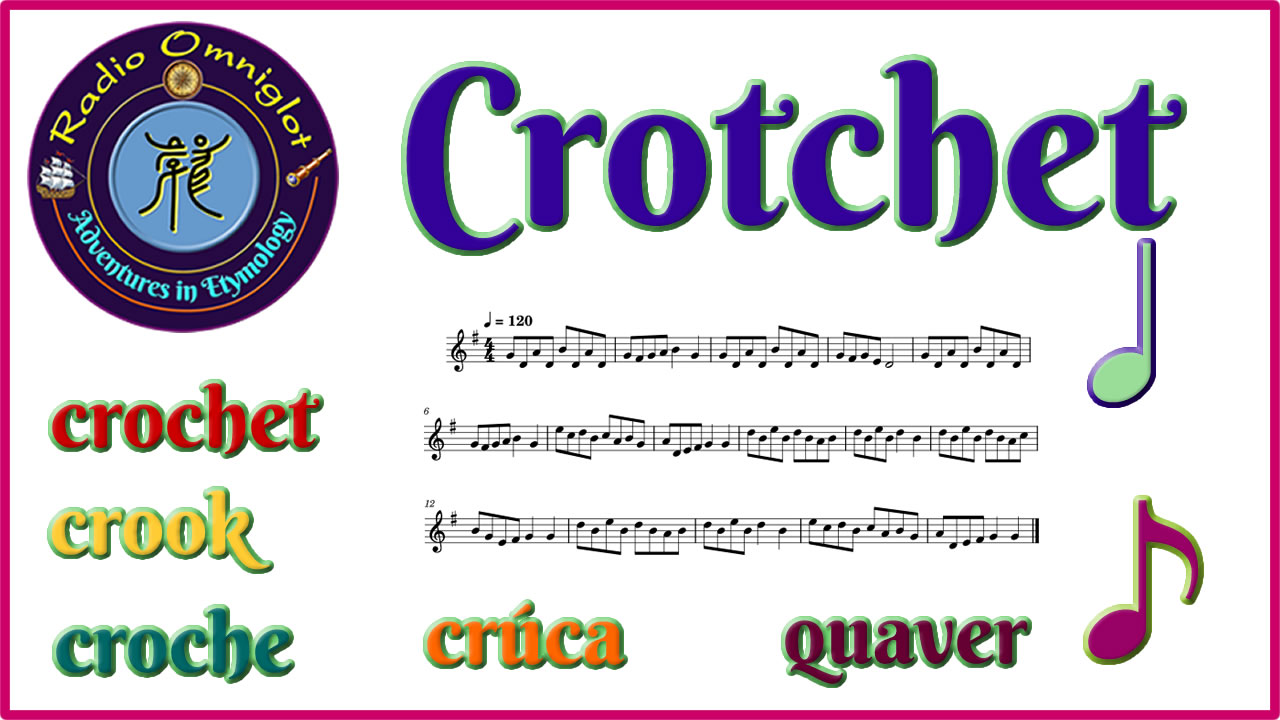

In this adventure we investigate the origins of the word crotchet and related things.

A crotchet [ˈkɹɒtʃ.ɪt] is:
- A musical note one beat long in 4/4 time (♩), also known as a quarter note in the USA
- A forked support or crotch
- A square bracket []
Historically it meant:
- A sharp curve or crook; a shape resembling a hook
- A hook-shaped instrument
- A whim or a fancy.
It comes from Middle English crochet (hook, crook, hooked staff), from Old French crochet (small hook) from croc (hook, hook-shaped weapon), from Frankish *krōk- (hook), or Old Norse krókr (hook), from Proto-Germanic *krōkaz (hook) [source].
Words from the same roots include crochet and crook in English, crúca (hook, crook, clutch, claw) in Irish, and crochet (hook, square bracket, fang) and croche (quaver / eighth note) in French [source].
The musical note was apparently called a crotchet because it had a small hook on its stem in old musical notation. In modern notation it’s the quaver (eighth note) that has the hook (a.k.a. tail) ♪.
Incidentally, quaver comes from Middle English quaven, cwaiven (to tremble), from Old English *cwifer, which is probably related to cwic (alive, living, intelligent, keen) [source].
Here’s an example of some crotchets, quavers and other musical notes in action in a tune I wrote a few years ago called Dancing on Custard played by me on the harp:
You can find a score for it on MuseScore – this is not exactly the same as the recording.
I also write about words, etymology and other language-related topics on the Omniglot Blog, and I explore etymological connections between Celtic languages on the Celtiadur.
You can also listen to this podcast on: Apple Podcasts, Amazon Music, Stitcher, TuneIn,